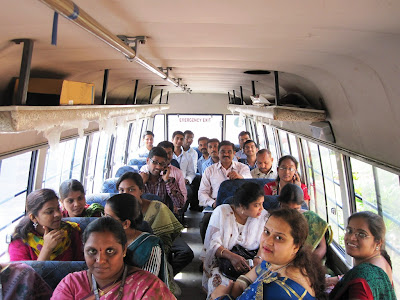ALEAP
(Association of lady entrepreneurs of Andhra Pradesh).....
H.No. 8-3-677/6, Sri Krishna Devaraya Nagar,
yousufguda, Hyderabad.
Tel: 91-040-23732733, 23735439, 8978988004
Tel: 91-040-23732733, 23735439, 8978988004
Tel Fax: 91-040-23732733
Ind. Est. : Ph:040-23151322, 8978988003
E-mail : aleap93@gmail.com
About Aleap
Our mission is to leverage entrepreneurship development and to achieve economic growth for women of India. To be the empowering agent to facilitate the development of dynamic women entrepreneurs. by strengthening their entrepreneurial capacities, and support growth of MSMEs in the formal and informal sectors.
Ind. Est. : Ph:040-23151322, 8978988003
E-mail : aleap93@gmail.com
About Aleap
The association was
established in December 1993 under company's act 1956 under section 25 as a non
profit organisation and today it holds the recognition of being one of
India’s premier institutions of women entrepreneurship.
VISION:
Work is the key to success, and hard work can help you accomplish every thing” Our vision is to become a center for excellence for training and development of Women Entrepreneurs.To foster women entrepreneurship with a focus on creativity, financial sustainability, and social impact
Work is the key to success, and hard work can help you accomplish every thing” Our vision is to become a center for excellence for training and development of Women Entrepreneurs.To foster women entrepreneurship with a focus on creativity, financial sustainability, and social impact
MISSION:
Our mission is to leverage entrepreneurship development and to achieve economic growth for women of India. To be the empowering agent to facilitate the development of dynamic women entrepreneurs. by strengthening their entrepreneurial capacities, and support growth of MSMEs in the formal and informal sectors.
SERVICES OF ALEAP
- Facilitator Business Development Cell (FAB)
FAB CELL was introduced in
the year 2006 to facilitate women with required information in a single window.
ALEAP provides counseling to Woman entrepreneurs through Facilitator and
Business Development Cell (FAB CELL) and this enables them to choose a business
activity in which they possess interest. Counseling and motivation are the key
areas in FAB Cell.This cell provides all required information on government
schemes. Policy guidelines, Industry specific incentives and other details.
This Cell is established in collaboration with Ministry of SSI, Government of
India under NEDB Scheme.The prospective entrepreneur is given all the material
to convert their idea into Business. FAB Cell provides information about:
1. Source of technology
2 .Financial requirement
3 .Government schemes and Incentives
4 .Certifications
5. Market Demand and Supply.
1. Source of technology
2 .Financial requirement
3 .Government schemes and Incentives
4 .Certifications
5. Market Demand and Supply.
- Centre for Entrepreneurship Development (CED)
CED was
inaugurated on 13th December 2003 by his Excellency Dr. A.P.J. Abdul Kalam, the President of India. CED aims at initiating training and research
on problems on development that must be solved for realizing planned
objectives. CED conducts seminars on topics oriented towards Industrial Establishments is associated with State Level Entrepreneurship
Development Organizations, NGO's Volutary Organizations, Educational
Institutions, Financial Institutions, Business Association & EDI,
Ahmedabad. CED acts as a liasion between Government and Entrepreneurs by
providing necessary information and helps women entreprenuers by providing
necessary consultancy.
CED conducts EDP, REDP, PMRY, WEDP, EAC's TOT's Agri Clinic and Agri Business Development programmes. CED provides follow up services after the training programmes. |
.jpg)





















